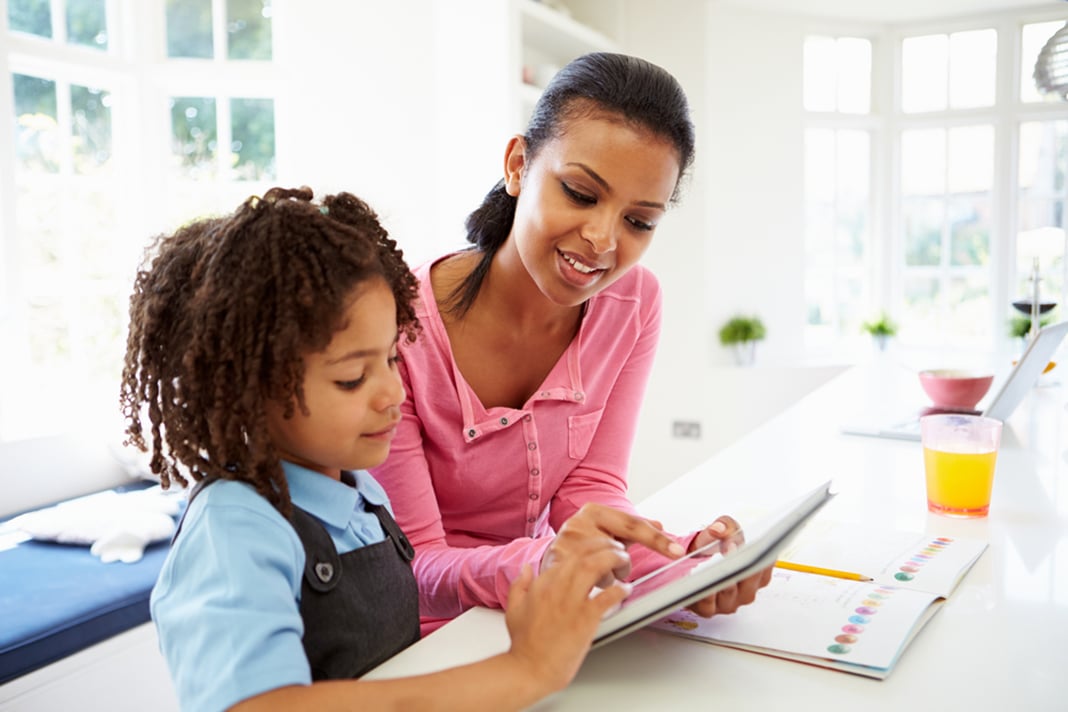Between 2016 and 2017 a survey of 1,500 people was conducted into home schooling. Led by researcher Alex Cimpoca and MKOR consulting, the research gained a big response from parents who had home schooled in the past or were currently home schooling.
The majority – 80% of respondents – were from the United States and just under 10% from Australia and other areas. Most respondents were aged between twenty-five and forty-four and had high levels of education themselves. Over half had a college degree, and 20% went to graduate school.
What is home schooling?
Home schooling began in the 1970s as a liberal movement in rural areas of the US. Major proponent of ‘unschooling’ John Holt pronounced traditional school as oppressive and designed to build children merely into compliant employees.
In the 1990s home schooling in the US was seen most often in Christian communities. However, following the development of the internet, home schooling communities have been growing in many other online communities. In 2011 1,770,000 children were homeschooled in the US, as parents were able to home school in groups online, regardless of where they lived.
Home schooling is a controversial issue, and often a hot topic among parents. The present study is the first piece of serious work to shed light on the everyday life of the home schooler. It looks at the answers to the common questions: Why do parents choose to home school? Who are those parents? What are the pros and cons? What are the top home schooling styles? Do home schoolers socialise?
Common reasons for home schooling
The common reasons were a conflict between schools and family’s religious values, concerns about the school environment and the quality of academic instruction, or need to look after their child at home for health reasons.
Other reasons include desire for one-on-one teaching, dispassionate teachers, concerns over the pressure and stress school puts on children, or fear of bullying.
One mother from the survey recalled the time when she tried to put her son in nursery school when he was two-and-a-half years old. He cried and cried and in the end she thought ‘what the hell am I doing?’ Another mother made the decision after her son requested staying home to avoid bullies. In a few instances lack of trust stemmed from the school system having failed the parents themselves.
How does home schooling work?
The most common style of home schooling is a relaxed elective style of teaching and learning. This usual format would be with the child volunteering ideas for what they want to learn. Plans tend to be kept flexible; and are adapted on a day to day basis. One mother recently enjoyed reading Farmer Boy with her son, after which they decided that summer would be spent living just like him, practicing hunting, gathering and survival skills.
Are there benefits to home schooling?
Most parents found many benefits from home schooling. They found little ones were engaged in learning, approaching parents with topics they were keen to spend more time on.
One home-schooled daughter had fondly labeled her morning routine “snuggle school”. Their day starts off with a very physical first class of the morning – Bible, poetry and prose memorisation, literature, and Latin, all while cuddling.
Parents also reported feeling reduced stress over their lack of trust of the schooling system and enjoyed spending more time with family. One mother tells how her husband is reading the Hobbit to our children. “He knew the Dwarf song would be coming up and so he practiced it privately for several nights. I’ll always remember hearing him sing it to them one cold rainy evening and a think the kids will too.”
However, although there were good points, only 16% percent of those surveyed could see no setbacks to the system. Common concerns were that home schooling was time consuming and parents found they had limited personal time, which was the reason for 10% of parents giving up on the system.
Parents’ other concerns included the lack of social and academic interaction, as one in twenty stopped due to poor social development.
Half of those surveyed called home schooling a total success – and of these parents, they only stopped because they felt their children had ‘graduated’; in other words they were ready for high school or college.
The results of the survey most directly imply to be that home schooling can be suitable for preschool and early stage education children but at some point all children should move on to more formal qualifications.
Would you home school your child? Let us know on Twitter or Facebook.
Read more like this at www.absolutely-mama.co.uk






NO COMMENT